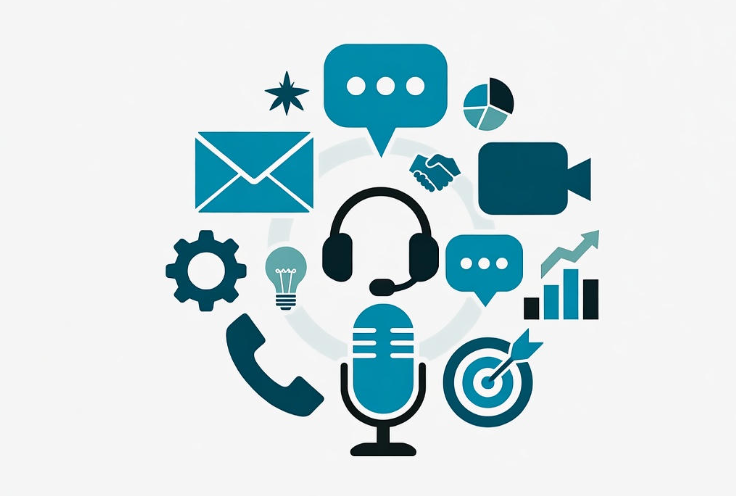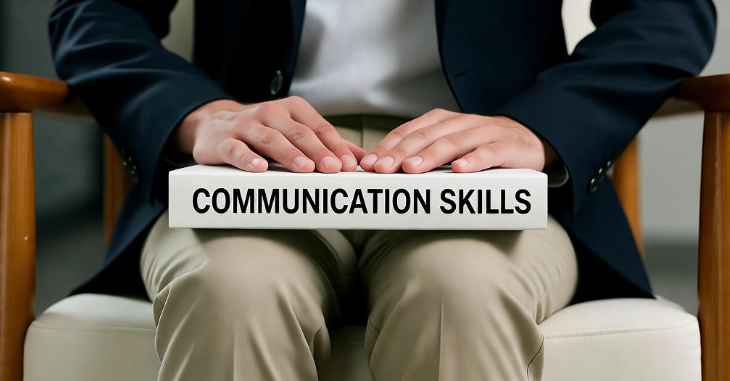Strong communication skills are essential at work. They help you express ideas clearly, build better relationships, and advance in your career. Yet, many people struggle to communicate effectively in a professional environment. Don’t worry—developing these skills is possible with practice, patience, and the right strategies. In this guide, we’ll explore practical tips and actionable advice to strengthen your communication skills at work.
Understand the Basics of Communication
Before improving, it’s crucial to understand what communication really is. Communication is not just talking. It includes listening, observing, and responding thoughtfully. At work, communication often happens through:
-
Emails and messages 📧
-
Meetings and presentations 🗣️
-
Informal conversations with colleagues ☕
Each type requires a slightly different approach. For example, email communication should be concise and professional, while face-to-face conversations can be more personal and engaging.
Practice Active Listening
Listening is often more important than speaking. Active listening means paying full attention to the speaker, understanding their message, and responding appropriately. Here’s how to practice:
-
Focus fully on the speaker – avoid checking your phone or multitasking.
-
Ask clarifying questions – show that you’re engaged.
-
Summarize what you hear – repeating the message in your own words ensures understanding.
Active listening not only improves understanding but also builds trust and respect among colleagues.
Be Clear and Concise
Many workplace miscommunications happen because messages are unclear. Being clear and concise makes your ideas easier to understand. Tips include:
-
Use simple language instead of jargon.
-
Break complex ideas into smaller, manageable points.
-
Pause occasionally to ensure your audience is following.
For instance, instead of saying, “We should synergize our workflows for optimized output,” you could say, “Let’s work together to make our tasks more efficient.” Simple words make a bigger impact.
Master Nonverbal Communication
Words aren’t the only tool you have. Nonverbal cues like body language, facial expressions, and tone of voice play a huge role in how your message is received. Pay attention to:
-
Eye contact – shows confidence and attentiveness.
-
Posture – standing or sitting straight signals professionalism.
-
Gestures – use natural hand movements to emphasize points.
Even small changes can make you appear more confident and approachable.
Adapt to Your Audience
Every colleague is different. Some may prefer direct communication, while others respond better to a softer approach. Adapting your style to your audience can reduce misunderstandings. Consider:
-
Experience level – don’t overload a junior team member with technical terms.
-
Communication preferences – some people prefer written updates, others verbal.
-
Cultural differences – be sensitive to different communication norms.
Give and Receive Feedback Gracefully
Communication is a two-way street. Giving constructive feedback politely and receiving feedback openly improves relationships and productivity. Tips:
-
Be specific – focus on actions, not personality.
-
Use “I” statements – e.g., “I noticed that the report was delayed…”
-
Listen to feedback – ask questions if you need clarification.
Regular feedback builds trust and improves communication across the team.
Enhance Written Communication Skills
Emails, reports, and chat messages are common in the workplace. Clear writing prevents mistakes and ensures everyone is on the same page. Guidelines include:
-
Keep sentences short
-
Use bullet points for key ideas
-
Proofread before sending
Here’s an example comparison:
| Weak Email | Improved Email |
|---|---|
| I need that thing soon. | Can you send me the monthly report by 3 PM today? Thanks! |
| Meeting tomorrow. | Can we meet tomorrow at 10 AM to discuss the project timeline? |
The improved email is polite, specific, and professional.
Build Confidence in Speaking
Confidence can make or break communication at work. If you speak hesitantly, your ideas may not be taken seriously. Boost confidence by:
-
Preparing ahead – know your facts before speaking.
-
Practicing – rehearse presentations or key talking points.
-
Starting small – practice speaking in small groups before addressing larger teams.
Confidence doesn’t mean perfection—it’s about expressing yourself clearly and assertively.
Handle Conflicts Effectively
Misunderstandings happen, even in the best workplaces. Strong communicators know how to handle conflict calmly. Steps include:
-
Stay calm and avoid reacting emotionally.
-
Focus on the issue, not the person.
-
Listen to the other side fully before responding.
-
Seek a solution that benefits both parties.
Conflict management is a skill that strengthens your professional relationships.

Leverage Technology Wisely
Digital communication tools like Slack, Teams, or Zoom have become standard. Use them effectively:
-
Be concise in messages – don’t overwhelm coworkers.
-
Use video calls for complex discussions – tone and body language matter.
-
Respond in a timely manner – delays can cause frustration.
Practice Regularly
Like any skill, communication improves with practice. Make small efforts daily:
-
Ask questions in meetings.
-
Offer feedback politely.
-
Share ideas clearly in emails.
-
Pay attention to your nonverbal cues.
Over time, these small habits build strong communication skills.
Create a Positive Communication Environment
A workplace where everyone communicates openly fosters collaboration. Encourage:
-
Regular check-ins
-
Team discussions
-
Open-door policies
-
Recognition of clear communication
Positive communication culture motivates employees and reduces errors.
Use Humor Carefully
A well-placed, light-hearted comment can ease tension and build rapport. Be mindful to:
-
Avoid offensive jokes.
-
Use humor relevant to the situation.
-
Keep it natural, not forced.
Table: Quick Communication Tips at Work
| Tip | How to Implement | Benefit |
|---|---|---|
| Active Listening | Focus fully, ask questions | Builds trust, prevents misunderstandings |
| Clear Language | Avoid jargon, short sentences | Easier to understand, reduces errors |
| Nonverbal Awareness | Maintain eye contact, good posture | Shows confidence, builds rapport |
| Feedback Skills | Be specific, listen actively | Improves relationships, productivity |
| Adapt to Audience | Match communication style | Reduces confusion, increases effectiveness |
FAQs
Q: How can I improve communication if I’m shy?
A: Start small. Practice in one-on-one conversations, then gradually speak in small groups. Preparation helps boost confidence.
Q: Is email communication important in building strong communication skills?
A: Absolutely. Clear and professional writing reduces misunderstandings and reflects your competency.
Q: Can nonverbal communication really affect workplace relationships?
A: Yes! Tone, gestures, and eye contact often convey more than words. Being aware of nonverbal cues can improve trust and collaboration.
Q: How long does it take to improve communication skills?
A: There’s no fixed timeline. Consistent practice over weeks or months brings noticeable improvements.
Q: Can technology help in building communication skills?
A: Yes, using digital tools effectively, attending online workshops, and practicing virtual communication all enhance your skills.
Conclusion
Strong communication skills are a cornerstone of career success. They’re not innate—they can be developed with awareness, practice, and dedication. By listening actively, speaking clearly, adapting to your audience, and managing feedback and conflicts effectively, you can become a confident communicator at work. Remember, every conversation is an opportunity to practice and improve. Start small, stay consistent, and watch your professional relationships and career growth flourish. 🌟





